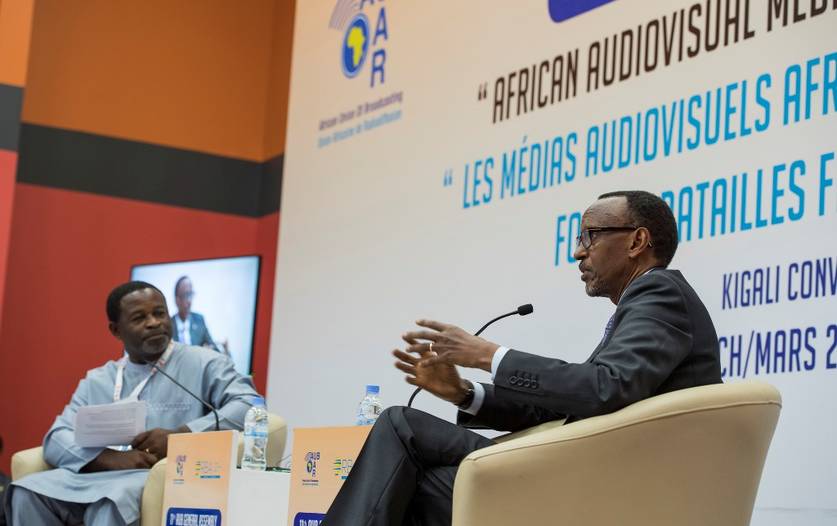The RPF Chairman, President Paul Kagame, has implored African leaders to learn from past mistakes to build a sustainable future, one where African peoples have their dignity and looking within for solutions to their problems.
Speaking at the 11th General Assembly of the African Union Broadcasting (AUB), the Chairman gave an example of Rwanda, saying that here we learnt the hard way.
“In Rwanda having learnt a lot of lessons the hard way, we are very realistic about our situation and the global issues that affect us. We understood that we have to do what is good for us and find out what works,” he said during an interactive session.
The meeting in Kigali drew representatives of public broadcasters from across the continent and beyond.
During the session, the Chairman spoke about a broad range of topics from broadcast rights for African content, to AU reforms, to African migrants’ issues.
“Some of these initiatives underway are not new. The 0.2% levy has been defended, argued about and is now very clear as one of the ways forward in being able to pay for our activities. If you don’t pay your bills you actually end up paying even more than you would, had you paid directly. The one who pays for you in the end owns you,” President Kagame said.
On broadcast rights for African football, President Kagame stressed that African leaders – public and private – need to confront the issue and devise ways for Africa to own its story and ways of transmitting it to Africans and beyond.
“It is an embarrassment that the rights of Africans playing football in Africa is managed by outsiders. There is nothing to be proud of in such a situation. For how long can we continue this way?” President Kagame asked.
The African Union of Broadcasting (AUB) is a professional body composed of national public broadcasters including both Radio and Television with a membership of 52 countries.
The organization groups state-owned public broadcasters in Africa and does mainly advocacy work but also creates a platform where these institutions discuss issues of mutual interests that cut across geographical boundaries.

